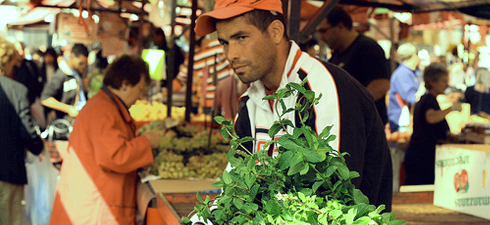Evidence is anecdotal for the moment, but it appears that at least among the Moroccan community - the largest group of non-European Union immigrants, numbering some 30,000 in Turin - people are packing their bags and going home.
The economic crisis is biting and jobs are much harder to find. On top of that, new legislation makes it harder for immigrants to renew their residence permits, and the xenophobic Northern League, a hardline coalition ally in the centre-right government, is resurgent following its sweeping gains in regional elections last month.
Abdelaziz Khounati, the Moroccan president of an Islamic association that has the green light to build a mosque in Turin, reels off a list of cities where the Northern League has blocked similar projects, sometimes threatening to walk pigs across the land to desecrate it.
"First the League campaigned against the southern Italians who migrated to Turin decades ago, then it was foreigners in general. Now it is Muslims," he says, standing in the large empty building, part of which used to be a Chinese-run clothing workshop, where the new Misericordioso (Merciful) mosque is taking shape. *Read*full article…
Integration
The San Salvario model
Whereas Turin's Porta Palazzo neighbourhood has been unable to shake off its bad reputation, La Stampa reports that San Salvario, which was once though of as "a magnet for immigrants" characterised by "poverty, drug dealing and slumlords," is increasingly viewed as a model for social integration. According to the Turin daily, "urban redevelopment and the commitment of local residents motivated by a strong sense of belonging" have transformed the neighbourhood. Today "there are still plenty of immigrants working in San Salvario, but the number who actually live there has declined now that the cost of homes in the area has climbed in response to an influx of young professionals, artists, craftsmen, and the opening of new restaurants and leisure facilities." However, La Stampa notes that immigrant communities are still defined by professional specialisations along national lines: "Romanians predominate in construction, Egyptians in the restaurant industry, and Peruvians in home-help and care-giver jobs."
Was this article useful? If so we are delighted!
It is freely available because we believe that the right to free and independent information is essential for democracy. But this right is not guaranteed forever, and independence comes at a cost. We need your support in order to continue publishing independent, multilingual news for all Europeans.
Discover our subscription offers and their exclusive benefits and become a member of our community now!












